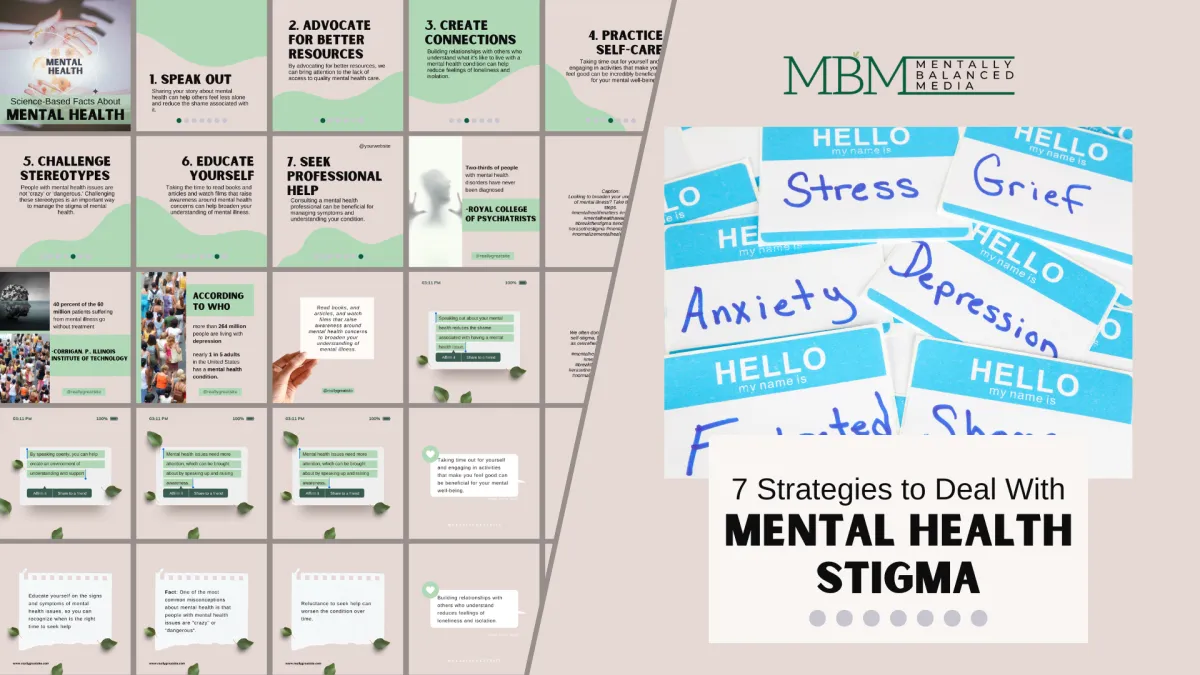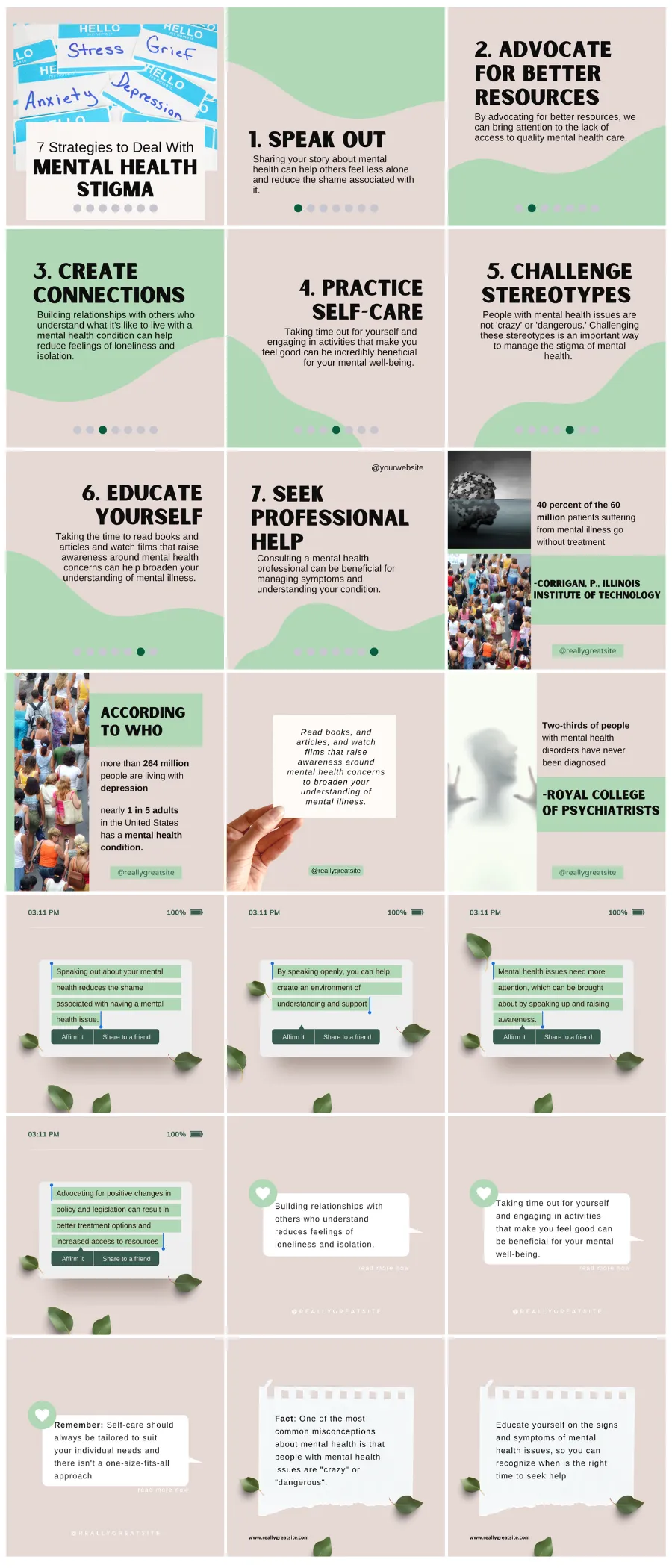

Mental Health and Well-Being
How to Deal With the Mental Health Stigma in 7 Ways

Inside The Bundles
1 Article
20+ Editable Design
Hashtag Recommendation
Design Content
50 Tweets
Article:
How to Deal With the Mental Health Stigma in 7 Ways
Mental health is an important topic that affects all of us, yet it carries a heavy stigma and is often seen as a taboo topic. Certain mental health illnesses cause suffering to millions of people around the world.
According to the World Health Organization, more than 264 million people are living with depression and nearly 1 in 5 adults in the United States has a mental health condition. Supporting this report, a study conducted by Patrick Corrigan of the Illinois Institute of Technology revealed that 40 percent of the 60 million patients suffering from mental illness go without treatment. (Download For More)

HASHTAG RECOMMENDATION:
#mentalhealthmatters
#mentalhealth
#mentalhealthawareness
#breakthestigma
#endjudgement
#erasethestigma
#mentalhealthjourney
#normalizementalhealthdiscussions
DESIGN CONTENT:
Carousel
7 Strategies to Deal With Mental Health Stigma
Science-Based Facts About Mental Health
QUOTE CARD
Read books, and articles, and watch films that raise awareness around mental health concerns to broaden your understanding of mental illness.
Consulting a mental health professional can help manage symptoms and understand the condition.
The emotional impact of self-stigma often affects people greater than the symptoms of the mental illness itself.
Speaking out about your mental health reduces the shame associated with having a mental health issue.
By speaking openly, you can help create an environment of understanding and support
Mental health issues need more attention, which can be brought about by speaking up and raising awareness.
Advocating for positive changes in policy and legislation can result in better treatment options and increased access to resources
Building relationships with others who understand reduces feelings of loneliness and isolation.
Taking time out for yourself and engaging in activities that make you feel good can be beneficial for your mental well-being.
Remember: Self-care should always be tailored to suit your individual needs and there isn't a one-size-fits-all approach
Fact: One of the most common misconceptions about mental health is that people with mental health issues are "crazy" or "dangerous".
Educate yourself on the signs and symptoms of mental health issues, so you can recognize when is the right time to seek help
Reluctance to seek help can worsen the condition over time.
